
Interview with Dr. Fabian Assion
מטה ישראל
Beckhoff Automation Ltd.

Interview with Dr. Fabian Assion
Against the backdrop of the energy transition, ensuring a reliable energy supply calls for a widespread expansion of the power grid. This is particularly true for distribution grids, as this is where the increasing number of decentralized energy generation plants – as well as storage and infrastructure systems with bidirectional energy flows – have to be integrated. Measurement, open-loop, and closed-loop control technology is turning the distribution grid into a smart grid: Data transparency in real time enables grid operators and energy suppliers to actively manage energy to compensate for fluctuations in power generation and consumption.
Your head start in smart grids with Beckhoff:

In areas with many power feeds, such as substations, distributed power measurement technology simplifies the process of determining effective current and voltage values. A single EL3443 EtherCAT Terminal per network measures the voltage and transmits it to the 6-channel EL3446 current measurement terminal, which can form any number of measurement points in the network with one SCT current transformer each. EtherCAT ensures time synchronization through distributed clocks. Benefit from affordable channel prices and a significant reduction in cabling effort that is virtually halved.

With its outstanding connectivity, PC-based automation simplifies the process of networking power generation systems with control centers, grid operators, and municipal power suppliers. Telecontrol protocols according to IEC 60870-5-10x and IEC 61850 can be installed as a library of the TwinCAT automation software and facilitate remote monitoring and operation optimization. By connecting to the cloud and providing data through OPC UA, energy monitoring is made more transparent with secure data access for different user groups.
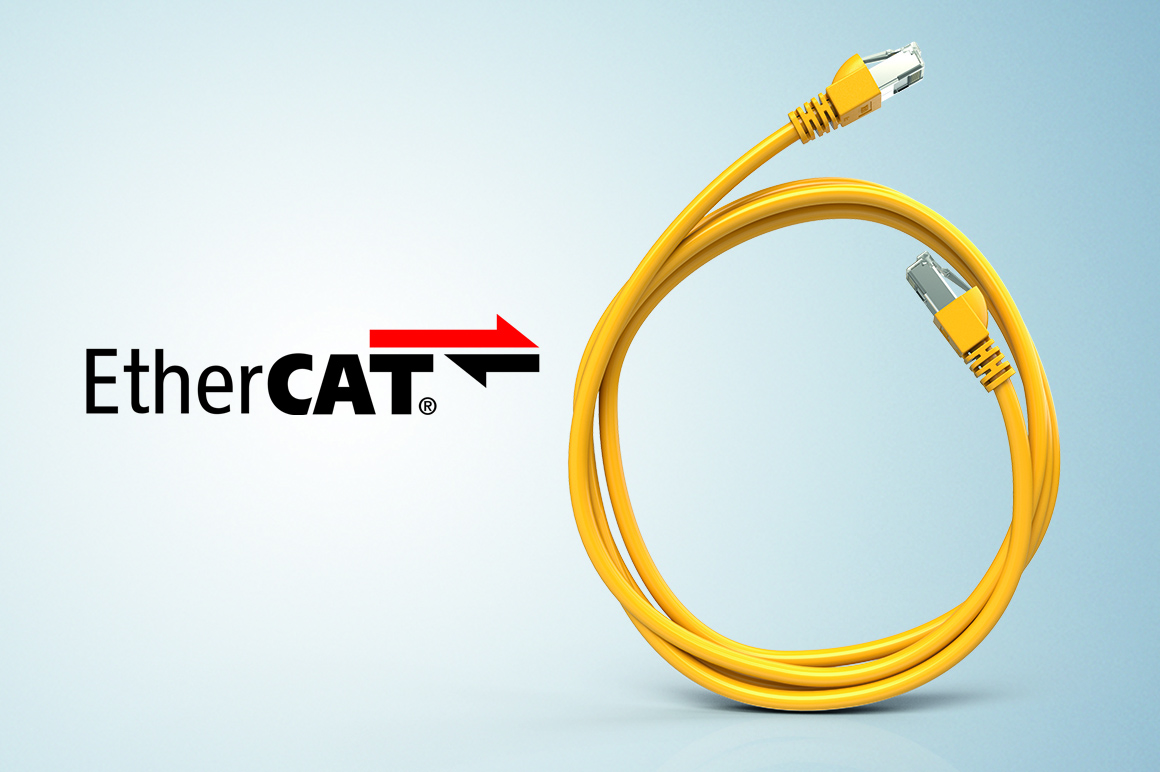
EtherCAT networks are capable of achieving accuracy in the micro- and sub-microsecond range when synchronizing distributed systems with distributed clocks. They bridge distances of up to 100 m via standard Ethernet cables and up to 20 km via fiber optic cables with no need for switches or routers. The EL6689 EtherCAT Terminal is used for integration over longer distances. As a GNSS (Global Navigation Satellite System) receiver, it synchronizes systems worldwide with an accuracy of 100 ns. The only additional hardware required is a satellite antenna.

The TwinCAT Analytics product family provides a complete workflow for energy monitoring in distribution grids – from data acquisition, communication, and data historization to analysis and visualization. What’s more, the openness of the PC-based control technology facilitates integration with third-party solutions for data evaluation and system control in the grid control systems of power generation companies, utilities, and grid operators.
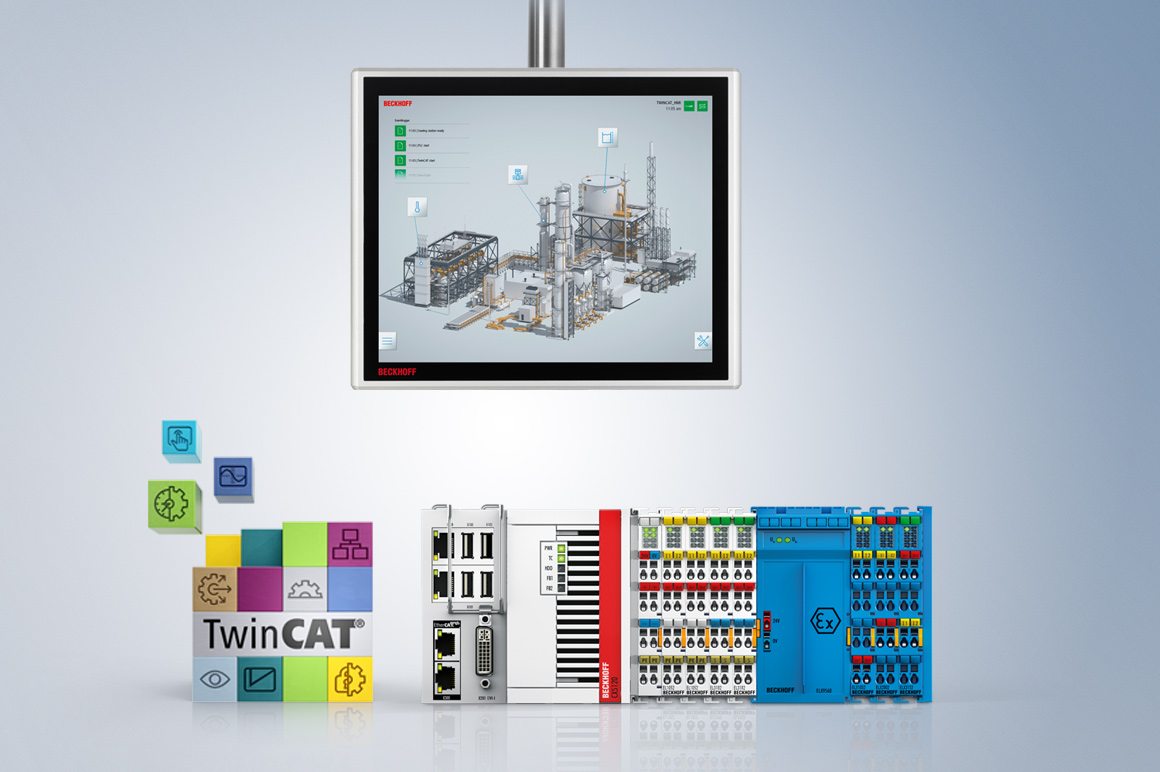
The energy supply of the future will achieve seamless communication between all players in the electricity grid: conventional power plants, renewable energy plants, solutions for balancing grid fluctuations, as well as local systems and infrastructures that can both consume and store or feed in energy. Grid operators and energy suppliers need to be able to rely on open control technology that can network these different systems.
Our control platform represents the ideal choice for end-to-end communication within the All Electric Society, as it is based on an industrial PC with comprehensive connectivity and IT functionality. In addition to industrial networks, the easily expandable platform also supports any other data networks and applications.
All control functions on a single platform:

Romande Energie SA, one of the five biggest energy suppliers in Switzerland, is using system-integrated measurement technology from Beckhoff in its substations. It implements the EL3453 power measurement terminals and other EtherCAT Terminals to assure grid availability and reduce costs and installation work. This is implemented via a secondary data acquisition system that can compensate for a failure of all or part of the main data acquisition path.
Romande Energie produces, distributes, and trades electrical energy in the canton of Vaud and parts of the cantons of Valais, Fribourg, and Geneva. As the operator of the supply grid, the company is also responsible for the 125 kV grid. More than 300,000 customers are supplied, which corresponds to around 500,000 people. The grid infrastructure comprises 45 transformer stations (high to medium voltage), 3,200 substations (medium to low voltage), 10,000 km of power lines, and 720 km of fiber optic lines.
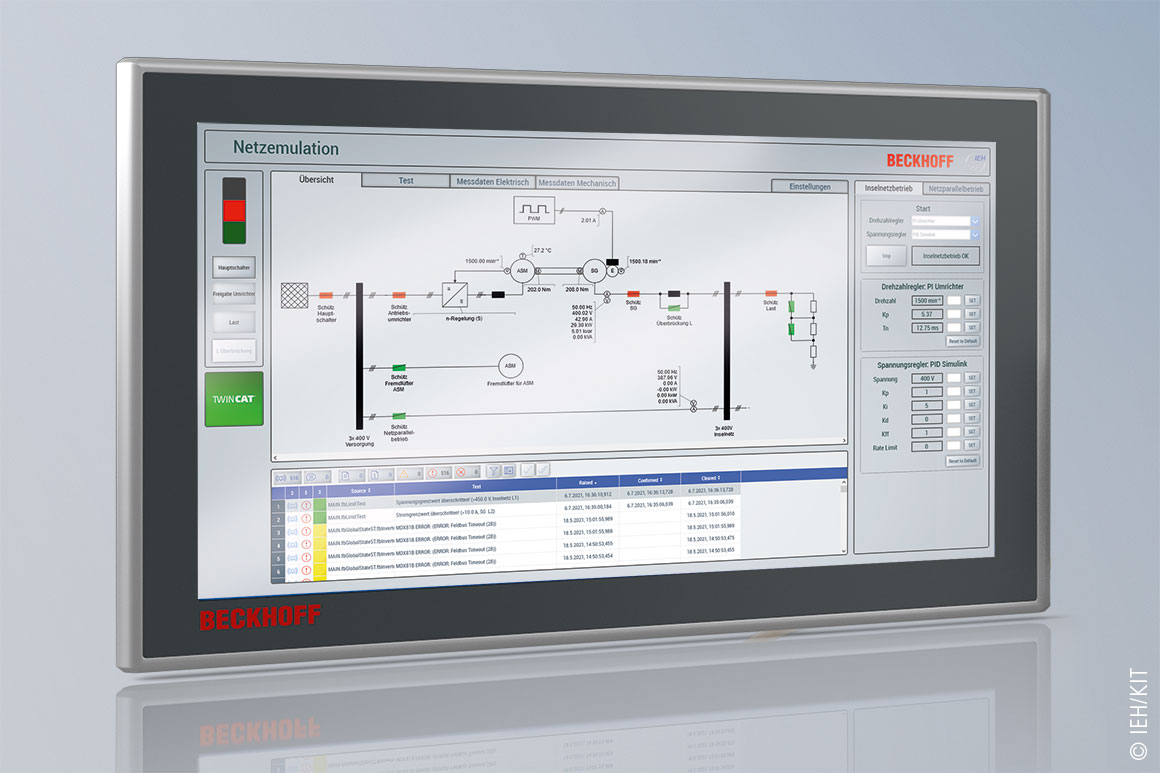
The Institute of Electrical Energy Systems and High Voltage Technology (IEH) at the Karlsruhe Institute of Technology (KIT) is researching ways to ensure system stability in the transmission grids that are changing as a result of the energy transition. In addition to simulative investigations, the behavior of power plants and inverter-based generation systems in an island grid is being simulated in a dedicated test environment. For this purpose, innovative new control methods are being carried out on Beckhoff Embedded PCs with TwinCAT, thereby validating their application in realistic scenarios.
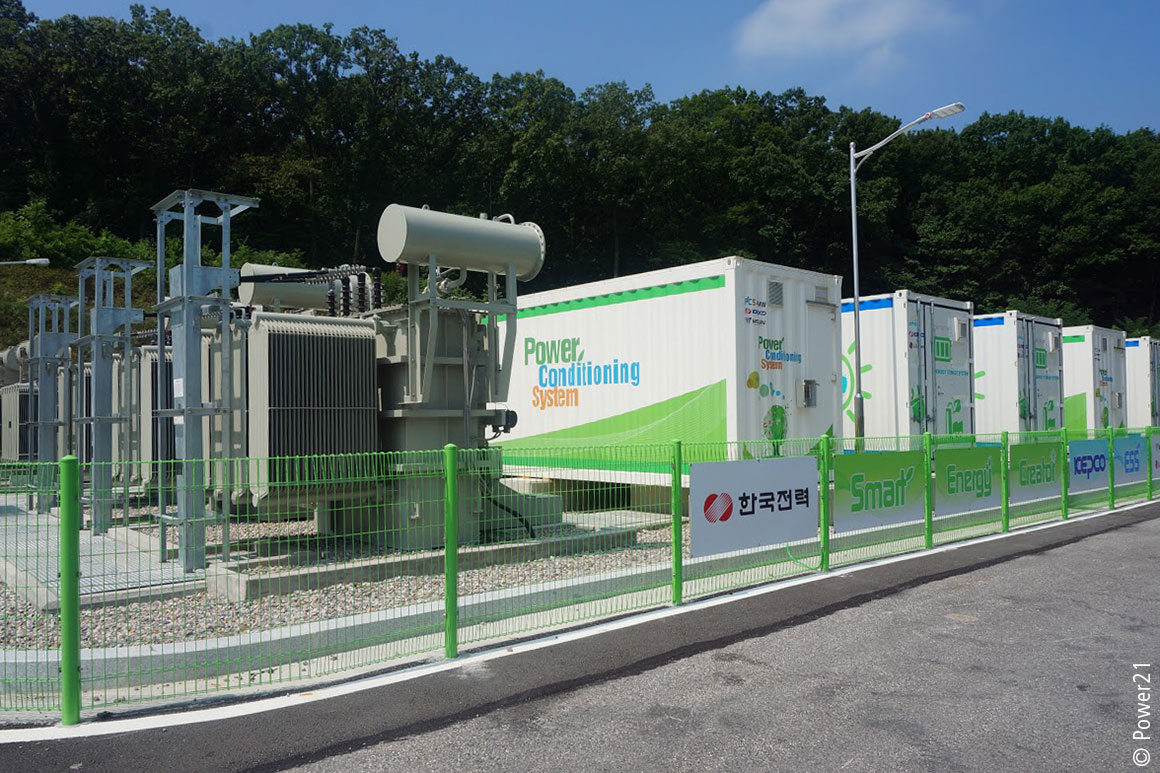
With Korea depending almost entirely on imported energy and regularly suffering from power shortfalls at peak times, energy supply and grid safety are major concerns. Against this backdrop, the Korean engineering office Power21 has developed an energy storage system (ESS) for frequency control as it strives to counteract grid fluctuations. The system is already being used successfully at the West Anseong substation of the energy supplier KEPCO (Korea Electric Power Corporation). The frequency control algorithm runs on a CX5020 Embedded PC. The EL3773 XFC terminal performs the high-precision frequency measurement.
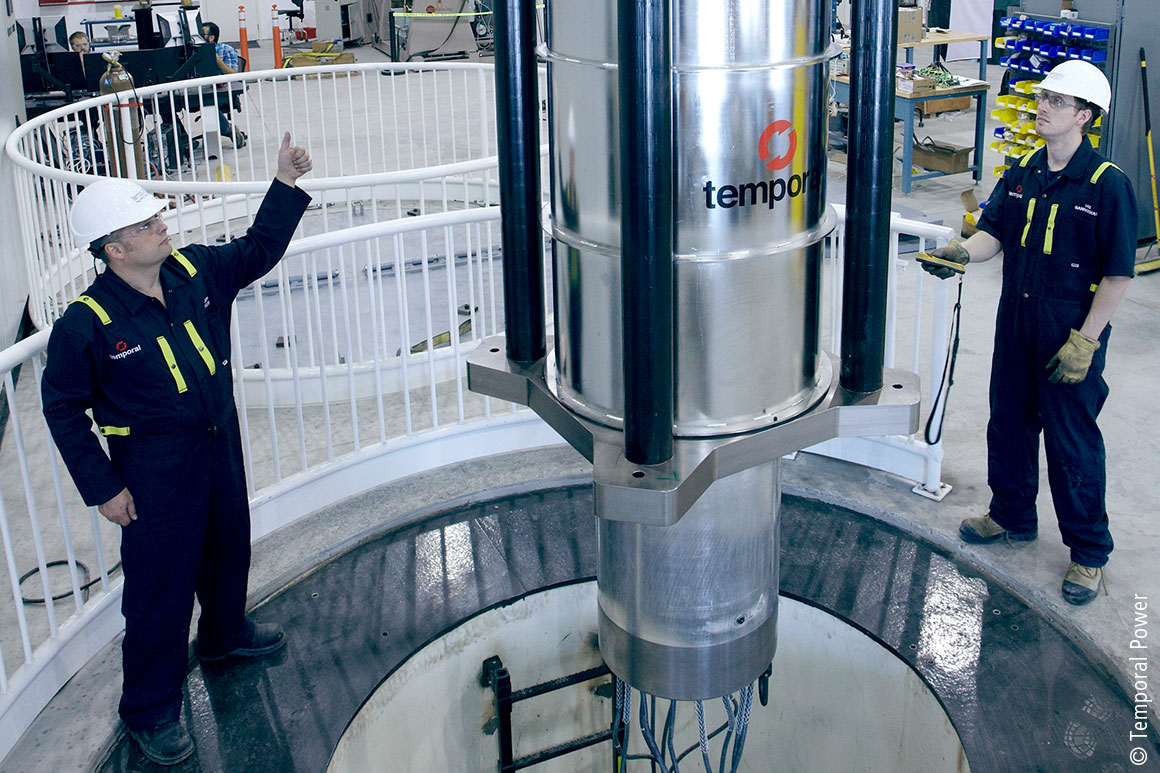
With the increase in renewable energies that are fed into the grid network, power grids are exposed to stronger fluctuations that need to be compensated in order to ensure a reliable power supply. This is where flywheels represent the ideal solution: by storing surplus generated power and quickly feeding it back into the grid when necessary, they can respond to grid fluctuations in fractions of a second. The innovative technology company Temporal Power, headquartered in Mississauga in Canada, uses this proven technology in its high-performance energy storage and control systems and is breaking new ground in the control of alternative energy generation plants.

Control and monitor power plants, wind farms, solar plants, and hydrogen production efficiently with PC-based control.

Unlock potential savings through end-to-end building automation from the office to the production hall.

Optimize machines and plants with energy management and resource-saving automation.